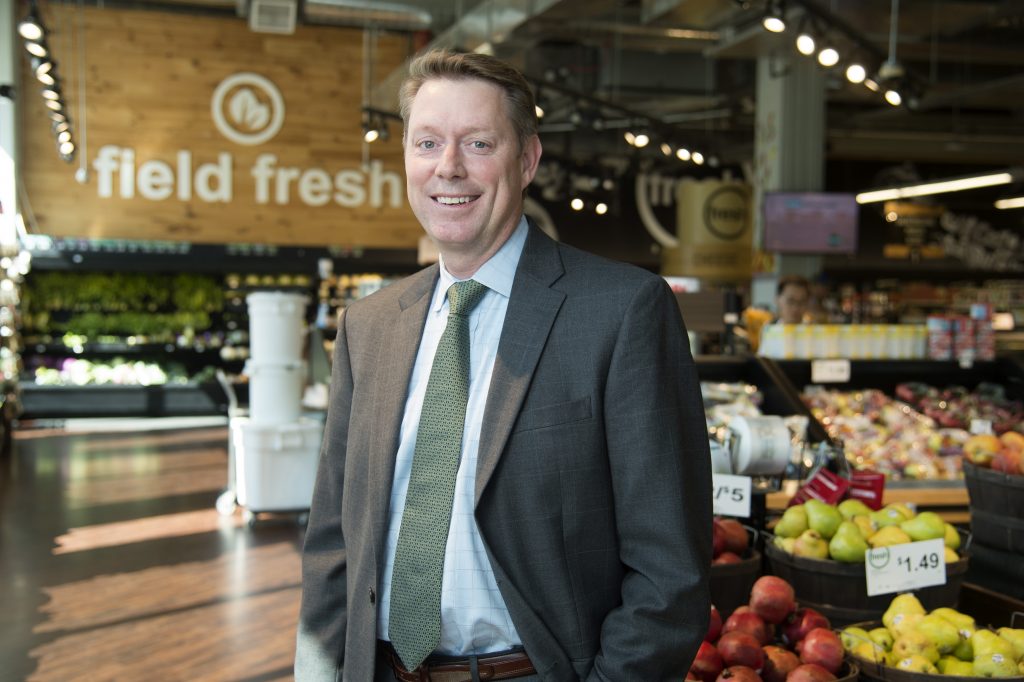This week we’re catching up with our 2017 Borlaug CAST Communication Award winner. Dr. Jayson Lusk serves as Distinguished Professor and Head of the Agricultural Economics Department at Purdue University. Lusk uses multiple forms of media to advocate for science, including his Twitter and blog website, as he explains how innovation and growth in agriculture are critical for food security and global progress. He has published more than 240 articles in peer-reviewed scientific journals and was a co-chair on the recent CAST Commentary, Economic Impacts of COVID-19 on Food and Agricultural Markets. Read below to learn why various media outlets name him as one of the most prolific and cited food and agricultural economists of the past decade.

What led you to study food technology and ag economics?
I grew up in a rural area of West Texas and spent summers working on neighbor’s cotton farms. That experience taught me two things: 1) I didn’t want to hoe cotton weeds the rest of my life and 2) I enjoyed working in food and agriculture. I participated in FFA dairy foods judging competitions in high school, and was able to meet some professors in that area who encouraged me to pursue that line of study. I enjoyed Food Technology at Texas Tech and had great classes and mentors; I was able to intern with a food processing company in the Dallas area for a couple summers and there I was exposed to a wide variety of jobs in the plant and across the industry, and I began thinking about the business-side of food. I considered an MBA, but my advisor encouraged me to think about graduate school in agricultural economics. After taking a couple upper-level courses, I was sold, and I haven’t looked back since.
Can you share a turning point or defining moment in your work as a food and agricultural economist?
There have been many turning points and influential moments. Choosing to pursue a Ph.D. at Kansas State, I was enmeshed with a great group of faculty and fellow students who instilled a love for research. I was connected with advisors who taught me a great deal about consumer research and food demand. Being a part of a couple big multidisciplinary grants early in my career helped expand my horizons, as did being elected President of the Agricultural and Applied Economics Association. Writing and publishing my first popular book about food and agriculture in 2013 provided many more opportunities for outreach and connection with the media and broader public. Deciding to become a Department head about four years ago has been another defining moment.
Do you have a favorite topic you like to present when you’re communicating on TV, radio, podcasts, etc.?
My go to subjects include: the importance of agricultural productivity, livestock and meat demand, consumer food behaviors and attitudes, and food policy.
How has the COVID-19 pandemic impacted your work life?
I probably received more media calls and requests from March to June of this year than I had in the previous 10 years. This occurred at the same time that there were high needs for research on COVID impacts in various industries. COVID prompted several new research projects and will likely continue to shape research in food and agriculture for years to come. Purdue students are back on campus, but most of our events and outreach activities have moved virtual, and classes are mainly operating in hybrid modes.
What’s the best piece of advice you’ve received?
Advice is cheap; I’ve learned a lot more by the examples others have set for me. I can distantly remember sitting in a class in high school and looking out the window to see my father (who was the school Superintendent) picking up trash on the school grounds. It wasn’t “his job”, and he didn’t know anyone was looking, but he was willing to do the hard work because it was the right thing to do and it needed to be done.

Your donation to CAST helps support the CAST mission of communicating science to meet the challenge of producing enough food, fiber and fuel for a growing population. Every gift, no matter the size, is appreciated.